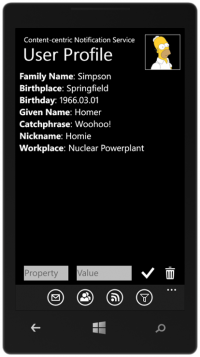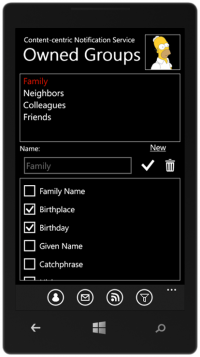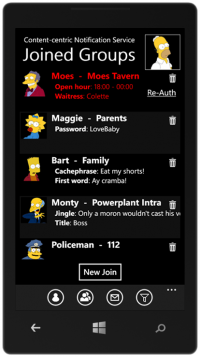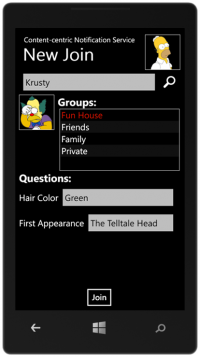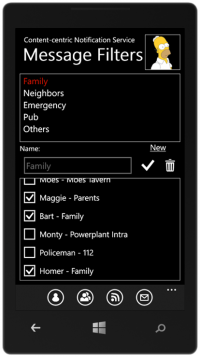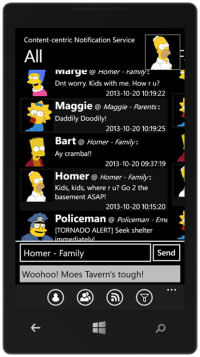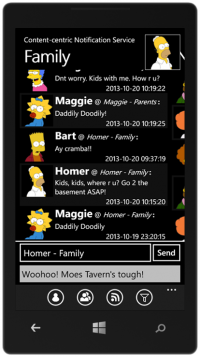Practical Course Advanced Networking (Winter 2013/2014)
File:Example.jpg== Details ==
| Workload/ECTS Credits: | 180h, 6 ECTS |
| Module: | M.Inf.805.6C: Fortgeschrittenenpraktikum Computernetzwerke (6C), M.Inf.1800.Mp: Fortgeschrittenen Praktikum Computernetzwerke |
| Lecturer: | Dr. Mayutan Arumaithurai |
| Teaching assistant: | Jiachen Chen |
| Time: | start:24 October 2013, 14:00-16:00 |
| Place: | IfI 3.101 (The First course will take place in Mayutan Arumaithurai's/Xiaoming Fu's office in the 3rd floor and not in 3.101) |
| UniVZ | [1] |
| The First course will take place in Mayutan Arumaithurai's/Xiaoming Fu's office in the 3rd floor and not in 3.101 |
| Please do not hesitate to contact us if you want to take this course or join the Hawaii competition. |
Course description
In this semester, some of our offered projects are supported by Microsoft's Hawaii project. By choosing one of the projects marked by Hawaii, you are eligible to participate in the [2]. (500 US dollars will be awarded to the most competent team within our university.)
We have some project(s) demo here last semester.
Prerequisites
You are highly recommended to have attended the following course(s) prior to this one:
- Computer Networks (previously "Telematik")
Organization
Informational meeting
At the beginning of this semester (see #Schedule), there is an informational meeting.
Course teams
Students conduct this course in small teams. A team consists of at most three students.
Passing requirements
- Present your topic and demonstrate your project at the end of this course (70%)
- Prepare a written report on the selected topic (12-15 pages, Template:[3]) (30%)
- It is mandatory for all students to stick to the deadlines mentioned in #Schedule.
Schedule
- 24 October, 2013, 14:00 - 16:00: Informational meeting
- Introduction to the course, selection of topics, formation of teams, and discussion of open questions
- 28 November 2013, 14:00 - 16:00: Project mid-term presentation
- Give a presentation on the project topic, motivation and project plan
- Time limit: 15 min presentation + 10 min Q&A
- 25 Feb 2014, 14:00 - 15:00: Project final presentation (Might change)
- Present and demonstrate your project, the motivation, the architecture, the program and the result
- Time limit: 25 min presentation (with demo) + 10 min Q&A
- 28 February 2014, 23:59: Submission of written report
Student Projects Demos
1.Content-centric Notification System (CNS)
A scalable, secure and timely notification system is always a necessary in daily communication. It is especially important in a disaster scenario. E.g., the government will notify the citizens about the status of the recovery, rescue and supply. The victims also need to notify their relatives (and whoever cares about them) their current status. They can also call for help (from ambulance service or any responsible service provided by the government) via such notification systems.
But the authorization is a big concern in such extreme scenarios. Authorization on a person-by-person basis is obviously not (energy, computation, and networkload) efficient. In such a system, we propose a new authorization system. A person create groups and use his own features (e.g., family name, cellphone number, eye color, etc.) as the challenge question for the group. In another word, he assumes that everyone who wants to join the group should have the knowledge of that information. Via such mechanism, a requester of a group can get authorization from other members of the group or even the network cache, thus save the cost on the group owner.
Another key feature of the project is the use of the Content-Centric Network (CCN). The new network architecture provides better support for a (topic-based) pub/sub system than the existing IP-based solutions. The demo system leverages the 6 machines in the network-lab running as CCN routers and hooks up with the HTTP translator on the edge of the network.
For more details, please check:
- Application definition of CNS: Media:CNSSlides.pdf.
- Architectural description of CNS: Media:CNSPoster.pdf.
- Demo abstract of CNS in ICNP 2013: Media:CNSPaper.pdf.
Topics
The following list of topics is constantly being expanded. If there is no topic that you like at the moment, please check back regularly for the most recent updates. You can also get in touch with us directly and we will try to find a topic that interests you. Also feel free to suggest your own topic(s) to the course advisors and we will accept it if the topic satisfies the requirements of this course.
| Topic | Topic advisor | Initial readings | Description | Student |
| Large scale crawling and data analysis | Mayutan Arumaithurai | The team will have to perform a distributed large scale crawl of some popular service/webpage and analyze the obtained meta data. | Eeeran Maiti | |
| The Telepathic Phone: Recognition of activities and gestures from WiFi RSSI | Stephan Sigg | [4] | Activity recognition on mobile phones usually requires that the device is carried while activities are conducted (e.g. accelerometer-based). However, it was demonstrated recently that this recognition is feasible also from WiFi RSSI when activities are conducted in proximity of the phone (device-free recognition).
We will provide a mobile phone and tools to extract RSSI information on the phone and to process the data offline. The team will develop an application that can achieve this processing real-time on the phone and display the recognised activities or gestures. |
|
| Indoor localisation based on RF-signal strength | Stephan Sigg | [5] | Indoor positioning still remains a challenging task since GPS does not work indoors and reliable.
In addition, ubiquitously deployed alternatives are not yet available. Recenty, localisation techniques based on radio frequency measurements has been proposed. We will provide USRP software defined radio devices and further required hardware equipment to design an accurate RF-based passive indoor localisation system. The students will implement an indoor localisation system based on RF signals. With the implemented prototype, the student team will participate in the 2014 IPSN Indoor Localisation Competition [7] |
|
| Mobile phones based Content Notification system for disaster management | Mayutan Arumaithurai,Jiachen Chen | The team will have to implement a content Notification system for Disaster Management on Mobile phones. | ||
| A Cloud-Enabled Mobile Content-Based Image Retrieval Application (Hawaii) | Jiachen Chen | [8] | The team will develop a cloud-enabled Content-Based Image Retrieval (CBIR) application for Windows Mobile platforms using the cloud as corpus rather than a local database. The application will have mobile interfaces which allow Windows Mobile users to access such service. Users can use their Windows Live ID to set up some preferences (such as preferred image size, search domain, etc) associated with the ID. | |
| A Mobile Socially-Aware Tour Guide Application (Hawaii) | Jiachen Chen | [9] | The team will develop an application which allows users to photograph/speak/input the name of a tour attraction and then invoke the cloud OCR/speak-to-text services and search engines to discover and share the information about this attraction. Users can write on the electronic-wall created for the attraction to share information. Users can also invite people who also visited the same attraction to be friends, get other people's comments or leave their own ones on this attraction, and recommend this attraction to other people. | |
| A Location Based Community Organizer (Hawaii) | David Koll | [10][11] | The team will develop a location based community organizer, similar to Facebook places. The idea is to share your location and activity with communities within your social contacts. If two members of a community are close to each other with regards to their location, the application will trigger events, which allow setting up meeting points, sharing contents (e.g., ratings for nearby places), etc. | |
| Store and Share in Your Friend Cloud (Hawaii) | Lei Jiao | [12] | Imagining that you can store your photos and videos remotely on phones of your trusted friends when your own phone is short of storage, and also imagining that you can make files on your phone accessible to your friends by only marking these files as "share", in this project, you are expected to develop such an application to enable Windows Phones of your own and your friends to form a network of shared storage by leveraging various cloud services (e.g., Relay and Rendezvous Services) from Microsoft. This application can be further enhanced by adding some location-based functionalities. | |
| Deal Goettingen (Hawaii) | Konglin Zhu | [13] | In this project, you will develop a deal sharing project. Different from online deal sharing, which usually concerns the online shopping over an area, this project considers the deal in the supermarket, shops and other real entity shopping places. The scenarios like a person needs to buy a pair of shoes in Goettingen, and he wants to know if there any discount over the city. The traditional way he going to look for the deal shop by shop. This would be time consuming (even online searching). Through our system, a person who see the discount information in the shop will upload it to the server. The server will reply the people asking for discount by push function. This system can also be used for peer-to-peer product trade, like online flea market. Other cloud function like label recognition, search, and location service will also be needed in this project. | thomas.denckev@stud.uni-goettingen.de, Georg Roth-kleyer (georokl@gwdg.de), a.wildschuetz1@stud.uni-goettingen.de |

